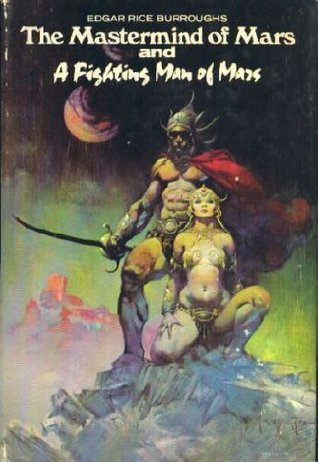What do you think?
Rate this book


348 pages, Hardcover
First published January 1, 1974
…denied deity, and in the same breath worshipped the fetish of science that they had permitted to obsess them quite as harmfully as do religious fanatics accept the unreasoning rule of their imaginary gods; and so, with all their vaunted knowledge, they were unintelligent because unbalanced.
…whose people are, I believe, the least advanced in civilization of any of the red nations upon Barsoom. Giving, as they do, all their best thought to religious matters, they have become ignorant, bigoted and narrow, going as far to one extreme as the Toonolians do to the other.
“If you mean that you hope that your principle will triumph because you fought and won, or that peace will come, your hopes are futile. War never brought peace—it but brings more and greater wars.”
“War is Nature’s natural state—it is folly to combat it. Peace should be considered only as a time for preparation for the principle business of man’s existence. Were it not for constant warring of one form of life upon another, and even upon itself, the planets would be so overrun with life that it would smother itself out. We found upon Barsoom that long periods of peace brought plagues and terrible diseases that killed more than the wars killed and in a much more hideous and painful way. There is neither pleasure nor thrill nor reward of any sort to be gained by dying in bed of a loathsome disease. We must all die—let us therefore go out and die in a great and exciting game, and make room for the millions who are to follow us.”
“It is a mad plan,” said the girl, “but a brave one.”